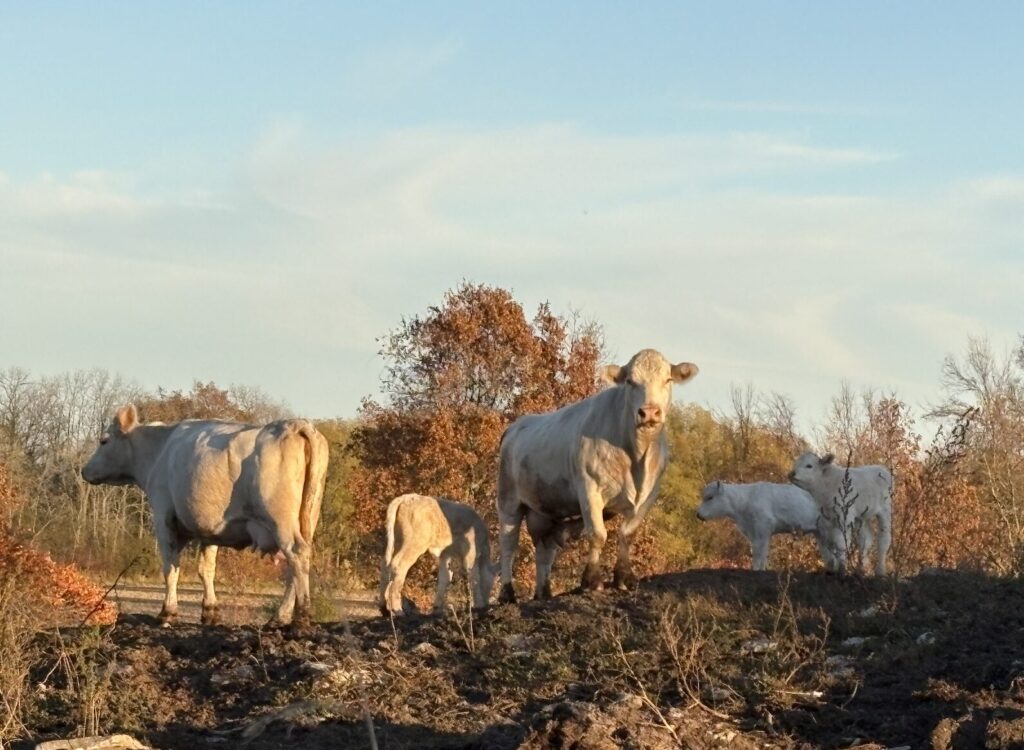 Over the fields in Cressy off Kaiser Crossroad.
Over the fields in Cressy off Kaiser Crossroad.
Councillors balked at a motion to protect the County’s, and Ontario’s, farmland last week, saying they did not believe the numbers.
A resolution of support for Bill 21, the Protect Our Food Act, stated as many as 3,000 acres of farmland are lost every year in Prince Edward County. The number sparked disbelief.
“If we’ve lost 3,000 acres of good farmland in the last ten years I’d be shocked,” said Councillor Harrison. “Being a farmer, I want to protect good farmland, but it’s so hypocritical and the numbers aren’t right.”
“I’d like to see, from our own data, how much farmland we are losing,” Councillor Brad Nieman agreed.

The figure comes from Statistics Canada’s Census of Agriculture, which averages the difference between the 2016 and 2021 census years. The data comes from farmers reporting the number of acres actively being farmed.
Martin Straathof, Executive Director of the Ontario Farmland Trust, agreed there is a “substantial difference” between the Statistics Canada figure and data from MPAC, the Municipal Property Assessment Corporation, which shows 830 acres of farmland lost in the County every year.
But both figures are correct. “The Statscan data is telling us what farmers actually have access to,” explains Mr. Straathof, while in MPAC’s data set, “all farmland that is reported is assessed for agricultural purposes even if it is not actively farmed,” he noted.
That means a little over two-thirds of the land reported “lost” by Statistics Canada is still zoned agricultural, but is in the hands of owners who are no longer using it for farming.
The 830 acres lost a year reported by MPAC, however, is farmland that is permanently lost, because it has been rezoned for development.
In both cases, “those numbers should be a wake up call,” Mr. Straathof notes.
Bill 21 is a private members bill introduced in the provincial legislature by Green Party Leader MPP Mike Schreiner and Haldimand-Norfolk MPP Bobbi Ann Brady. It aims to enlist a committee of agriculture and planning experts to identify lands for a protected Foodbelt. It would add an agricultural impact assessment to rezoning applications.
Statistics Canada says the County loses 3000 acres of farmland every year. MPAC says the figure is 830 acres. Both figures are correct. Statscan’s 3000 acres includes land still zoned agricultural but no longer farmed. The MPAC figure reflects land that has been
rezoned — or permanently lost to farming.
MPP Schreiner paid a visit to the Agricultural Advisory Committee over the summer, earning its support as well as that of the Environmental Advisory Committee. A resolution of support for the Protect Our Food Act was put on the Council agenda, and included data from Statistics Canada that says Ontario loses as much as 319 acres of farmland a day, a number MPP Schreiner has been quoting as he raises awareness about the bill across the province.
For an area like Prince Edward County, the threat is to one of the pillars of the local economy, as well as the heritage landscapes that come of cultivating it. According to the 2021 Agriculture Census, “smaller and mid-sized farms are declining in Canada, thereby impacting the rural landscape and profile of Canadian regions.”
But for Councillor David Harrison, the real culprit is homegrown.
“I find this extremely hypocritical,” he said. “We’re putting this forward and we’re one of the biggest offenders.” He blamed previous councils for letting good farmland slip away by rezoning it for future development.
Councillor Branderhorst, who sits on the Agricultural Advisory Committee, said that this was all the more reason to create “a united front in agriculture-based sectors.”
“There is beautiful land out there,” that Council did not have the power to protect because it had been zoned for development long ago, she agreed, but asked, “does that mean you give up?”
Councillor John Hirsch noted, “in 2021 we put in place an Official Plan that has very strong protections for farmland.”
“With our strategic plan, we are supposed to be counting how much land is being lost to severances,” said Councillor Branderhorst.
Council referred the resolution back to the Agricultural Advisory Committee to check the statistics.
See it in the newspaper